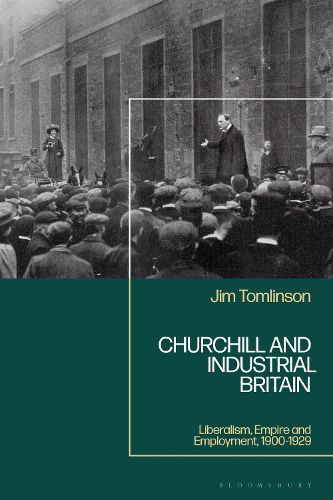Readings Newsletter
Become a Readings Member to make your shopping experience even easier.
Sign in or sign up for free!
You’re not far away from qualifying for FREE standard shipping within Australia
You’ve qualified for FREE standard shipping within Australia
The cart is loading…






This book offers a new understanding of the main economic and political trends of 20th-century Britain, through the lens of Churchill's early career and approach to industrialisation.
Shedding fresh light on Churchill's political endeavours between 1900 and 1922, this study analyses his work within his political constituencies, and highlights how he attempted to balance their local concerns with his larger imperial agenda. Tomlinson guides readers through Britain's industrial challenges at the start of the twentieth century - with a particular focus on the textile economies of Churchill's constituencies in Lancashire and Scotland - and shows how industrial competition within the Empire exemplified the tensions between domestic economic policy and attempts at globalization, and influenced Churchill's later politics.
Tomlinson acknowledges the role of the First World War in boosting the industrial output and bargaining power of countries within the Empire, and analyses these alongside key moments in Churchill's early career, such as his defeat at Dundee, and time at the Exchequer. In doing so, the author highlights the context in which Churchill's ideas on the politics and economics of Empire were first formed, particularly in relation to the impact of imperial economic policy on British domestic prosperity. Ultimately, this book delivers a new assessment of twentieth-century British economic history, in the light of Britain's relationship to the Empire and the 'first great globalization'.
$9.00 standard shipping within Australia
FREE standard shipping within Australia for orders over $100.00
Express & International shipping calculated at checkout
This book offers a new understanding of the main economic and political trends of 20th-century Britain, through the lens of Churchill's early career and approach to industrialisation.
Shedding fresh light on Churchill's political endeavours between 1900 and 1922, this study analyses his work within his political constituencies, and highlights how he attempted to balance their local concerns with his larger imperial agenda. Tomlinson guides readers through Britain's industrial challenges at the start of the twentieth century - with a particular focus on the textile economies of Churchill's constituencies in Lancashire and Scotland - and shows how industrial competition within the Empire exemplified the tensions between domestic economic policy and attempts at globalization, and influenced Churchill's later politics.
Tomlinson acknowledges the role of the First World War in boosting the industrial output and bargaining power of countries within the Empire, and analyses these alongside key moments in Churchill's early career, such as his defeat at Dundee, and time at the Exchequer. In doing so, the author highlights the context in which Churchill's ideas on the politics and economics of Empire were first formed, particularly in relation to the impact of imperial economic policy on British domestic prosperity. Ultimately, this book delivers a new assessment of twentieth-century British economic history, in the light of Britain's relationship to the Empire and the 'first great globalization'.